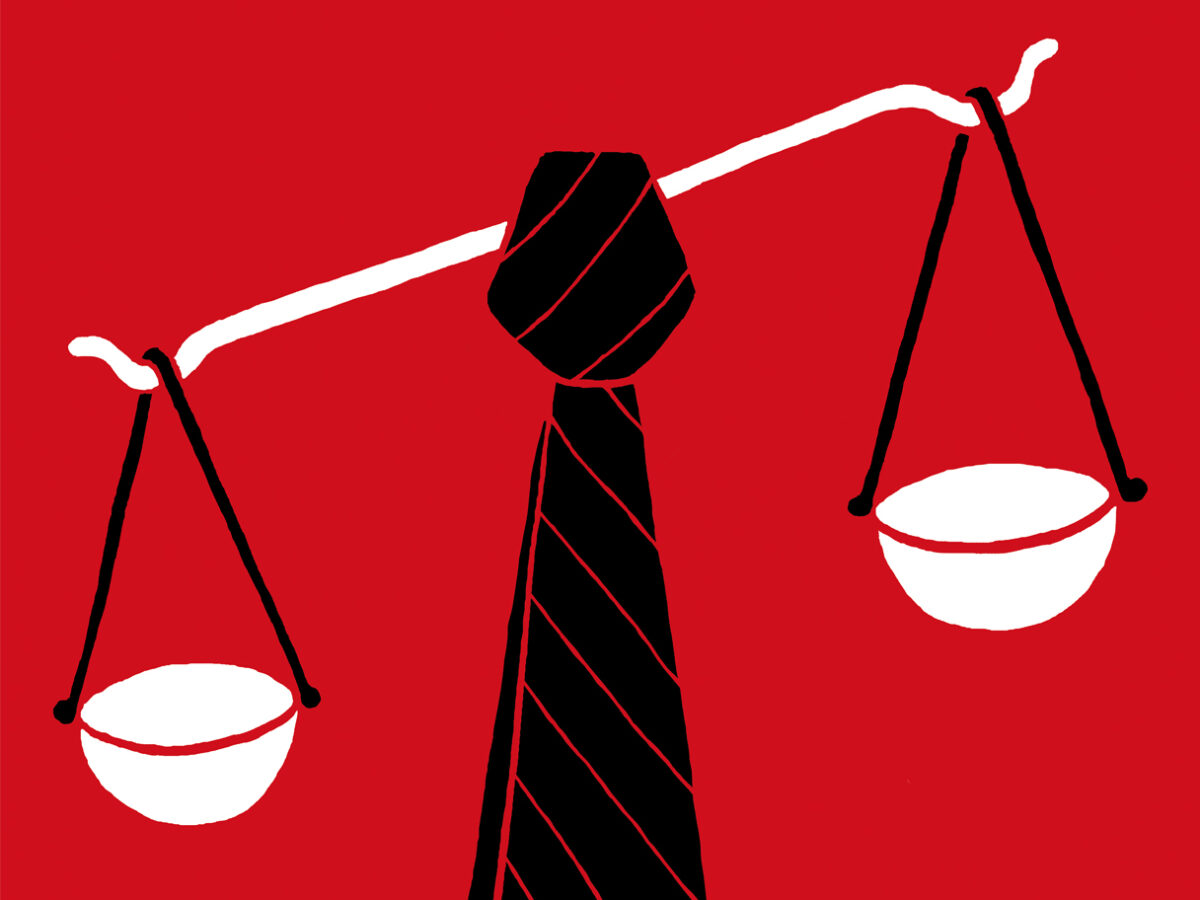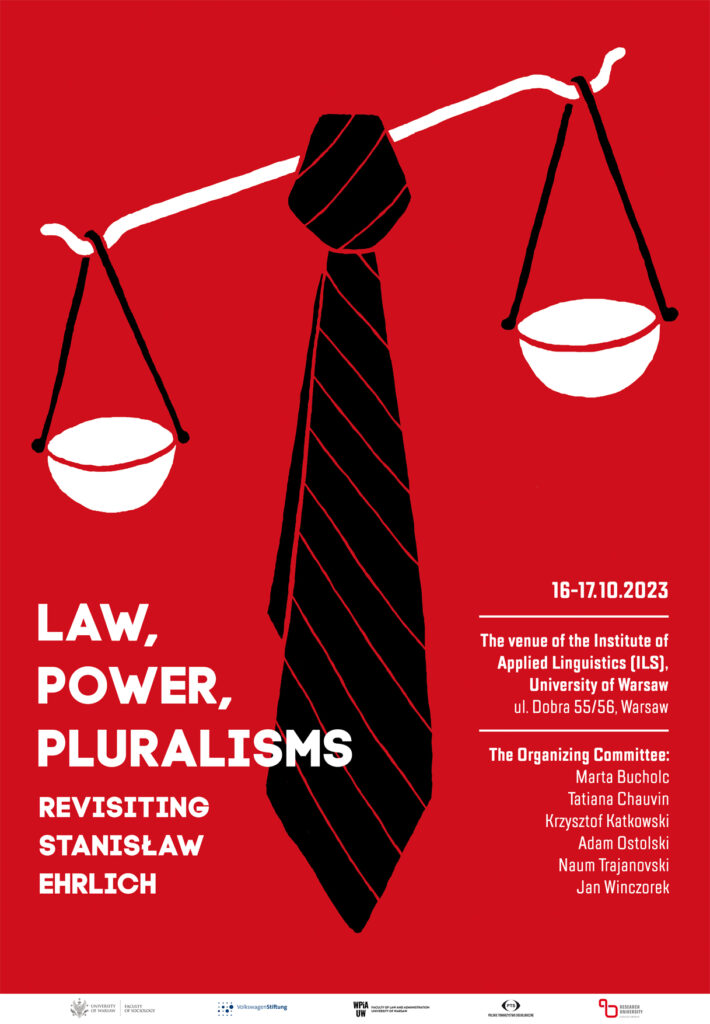
Conference: Law, power, pluralisms. Revisiting Stanisław Ehrlich
16/10/2023
Prawo, władza, pluralizmy. Myśląc ze Stanisławem Ehrlichem
16-17 October 2023
In English, a kick-off roundtable in Polish. In-person
Organizers: Faculty of Sociology, University of Warsaw; Faculty of Law and Administration, University of Warsaw; Polish Sociological Association’s Section of Sociology of Law
Venue: Warsaw
Across the world, issues of law, legality, and legitimacy have recently emerged as increasingly important foci of democratic debates and political confrontations. The urgency of polemics over differing interpretations of the rule of law, constitutionalism, and checks and balances is not conducive to a deeper reflection on the power of law, its contested meaning, and diverse workings for various groups within society. Both historical perspective and critical concepts are needed in order to break the deadlock and refresh our thinking beyond the immediacy of handy cliches.
In this spirit, we propose to revisit and engage with the legacy of Stanisław Ehrlich (1907–1997), a leading legal scholar as well as one of the founders of the sociology of politics and political science in post-war Poland. His oeuvre, spanning over several decades, covered such themes as a critique of legal positivism, challenging the prevailing understanding of socialist legality, interest groups, pluralism, theory of norms and normative utterances, and decision-making processes, among others. In the spirit of interdisciplinarity, we invite contributions by sociologists, lawyers, historians, political scientists, feminist scholars, philosophers, and representatives of other social sciences. We invite both papers devoted to different aspects of Ehrlich’s thought and to different facets of our contemporary predicament read through the lenses of other critical theories. Focus on Ehrlich and his writings is not mandatory, though priority will be given to proposals that will, to a lesser or greater degree, engage with his oeuvre.
Ehrlich believed that every political system can and must be pluralistic because of the inherent diversity of underlying interests. Despite numerous negative developments, including the worldwide consolidation of anti-democratic forces in the last decade, this idea still offers hope for curbing authoritarianism. It also invites exploration of the consequences of Ehrlich’s thinking in both political and legal spheres. With this in mind, the conference invites contributions examining the manifestations of, opportunities for, and threats to all forms of pluralism in public life.
